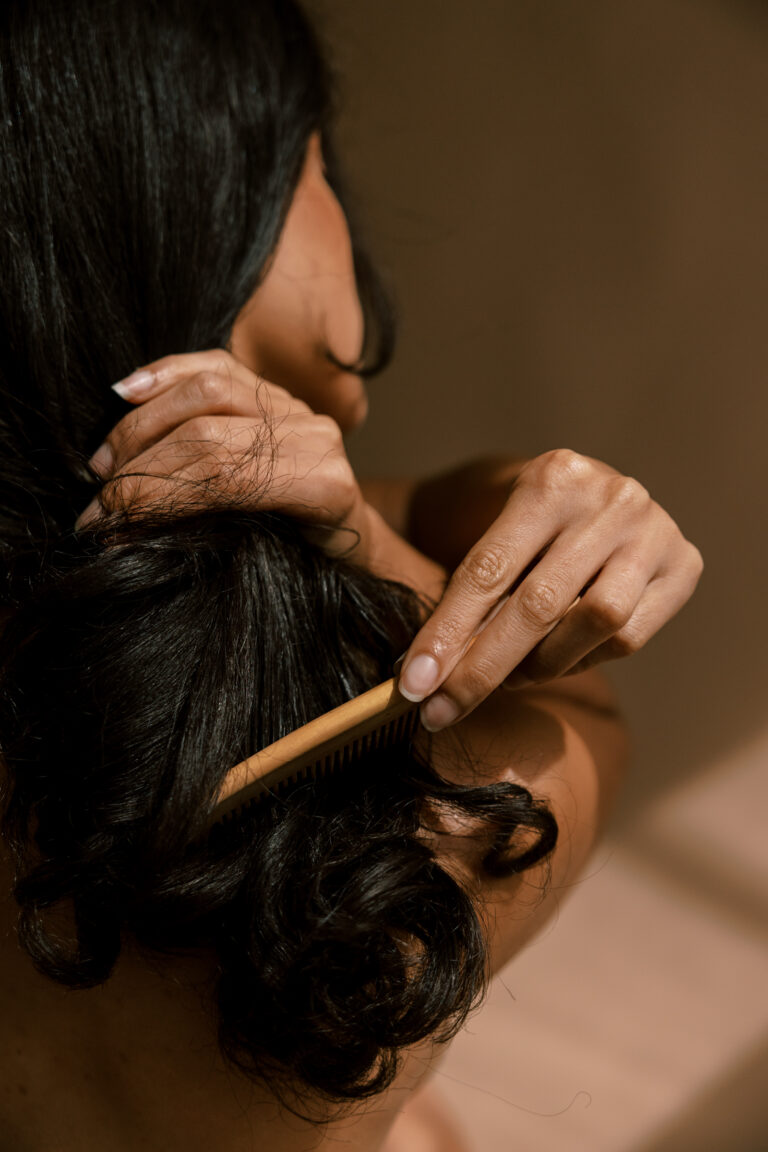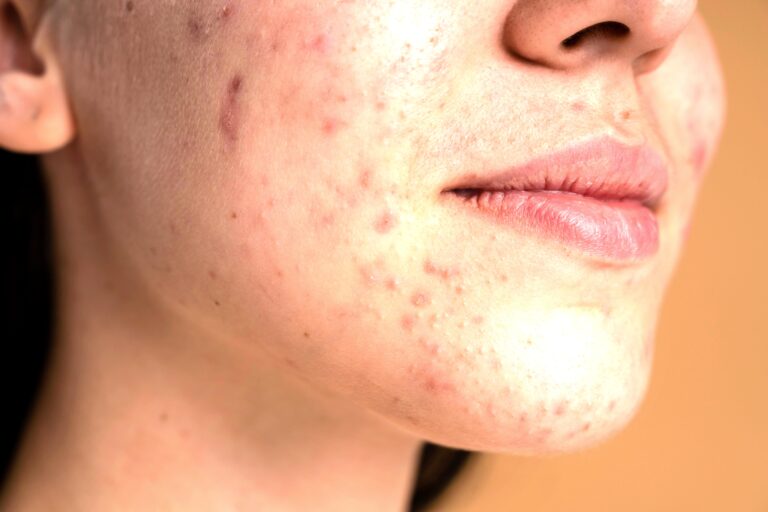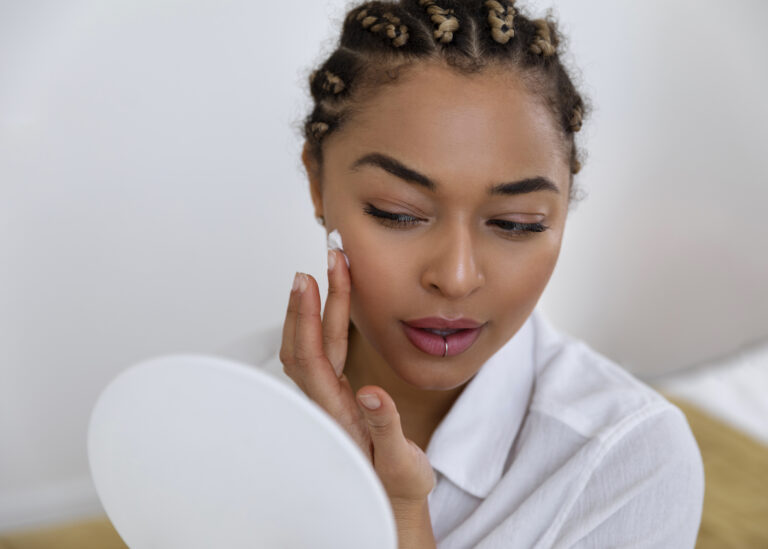Get Glowing Skin During the Cold Winter Months

Ladies, are you ready to tackle winter skin blues and keep your skin looking as radiant as a summer sunset? If so, you need this complete guide to winter skincare.
With Halloween, Christmas, and Bonfire Night (and Thanksgiving, of course, for the American readers), there are many things to love about winter. But one thing we dread is the dry and unforgiving cold air that dulls our skin’s natural glow. Fear not, though, because we’re here with the best winter skincare tips to help you embrace the cold and boost your radiance.
So, as the temperature drops, it’s time to skin cycle and change your routine with skin-loving secrets that’ll keep your complexion luminous and fresh, no matter how cold it gets.
Ready to turn winter woes into winter wows? Grab your favorite hot drink as we dive into the best winter skincare tips and tricks to glow during the chilly months ahead.
What Your Skin Needs in Winter
As we swap our flip-flops for fuzzy socks and iced coffees for hot chocolate, it’s not just our wardrobe and food that needs a seasonal switch-up—our skincare routine craves a transformation, too. So read on to learn more about essential winter skincare.
From November to February, you may notice your skin becoming drier. This is due to a drop in humidity, which, while making our hot showers more heavenly, can strip our skin of its natural, nourishing oils, leading to dehydration and a lackluster complexion.
But what exactly does our skin need to combat these chilly challenges?
Three words: hydration, hydration, hydration.
Imagine your skin as a delicate flower in the frost – without enough water, it wilts. Our skin works in the same way – it needs a barrier to lock in moisture and protect it from the biting wind. This means reaching for richer moisturizers and serums packed with hyaluronic acid and not shying away from gentle exfoliation to buff away flaky skin. And let’s not forget the lips and hands, which also cry out for extra TLC during this season.
As we talk more about winter skincare, remember that the goal is to nourish deeply and protect diligently. By understanding the unique needs of your skin during the colder months, you set the stage for a winter skincare routine that’s as nurturing as it is effective.
The Ultimate Winter Skincare Routine
When it comes to the best winter skincare routine, the products we need vary due to our different skin types. Whether dry, oily, sensitive, mature, or a combination of them all, there are specific winter skincare products you must choose for best results.
Cleanser
Clean, balanced skin is a must-have before applying any other product. This allows serums, oils, and moisturizers to do their work at the most optimal levels. Facial cleansing also rids the pores of previous skincare products, stopping clogging and preventing blemish build-ups.
So what are the best cleansers for winter?
Dry Skin – As a woman with dehydrated skin, you may opt for a creamy, hydrating cleanser all year round. But during winter, you need to up the moisture levels. Using a balm cleanser is the perfect winter skincare product for dry skin as it gently removes impurities without stripping any liquid from the skin cells. Investing in a facial cleansing balm leaves your skin looking and feeling plumper, making it the holy grail of a winter skincare routine – halleluja!
Sensitive Skin – This skin type struggles through every season, but the winter months are particularly rough. Your skin is zapped of moisture, leaving it itchy and red, so you need a gentle yet nourishing cleanser during cold weather. For a happy, calm complexion you need to buy a soothing, non-foaming cleanser free from irritants like alcohols, sulfates, and artificial fragrances. Ingredients such as oatmeal, aloe vera, and chamomile are well known for their calming properties, reducing inflammation, and soothing the skin. These winter-approved cleansers typically come in a cream or milk-based formula that is perfect for delicate skin while still offering a thorough cleanse, making them a staple for anyone looking to keep their sensitive skin in balance.
Oily Skin
In the winter months, individuals with oily skin need a cleanser that manages oil without increasing the drying effects of harsh weather. A gel-based cleanser infused with hydrating ingredients like hyaluronic acid can offer a moisture boost while ingredients like salicylic acid gently exfoliate and prevent pore blockage. Choose winter skin care products that balance, aiming to regulate sebum production without stripping the skin’s protective barrier. Formulas with calming agents like green tea or aloe vera can be especially beneficial and soothe the skin while controlling shine.
Mature Skin
For mature skin, particularly during winter when the air is dryer, a cleanser that supports hydration and nourishment is essential. Cream or lotion-based cleansers with added anti-ageing ingredients like retinol, peptides and antioxidants improve skin texture and elasticity while cleansing. These ingredients support skin cell renewal and combat the signs of ageing.
Exfoliation for All Skin Types
This is a skin care step you need to incorporate or increase during the winter season. But gentleness is the name of the game. Exfoliating during this season is a delicate balance – it’s essential for sloughing off dead skin cells and facilitating cell turnover, which can become sluggish in the colder months. However, you must choose a method that’s gentle enough without stripping away vital oils and exacerbating dry, chapped skin (a common winter woe). All skin types should opt for a mild chemical exfoliant, like those containing alpha hydroxy acids (AHAs) at a low concentration. This will provide a thorough exfoliation without the abrasiveness of physical scrubs so you can gain and maintain a glowing complexion, aid in the absorption of moisturizers and prevent the dullness often associated with winter skin, all while being mindful of harsher conditions on the skin’s barrier.
Toner
Smoothing a toner over clean, dry skin can transform any skin type. Toners remove excess oil and grime while tightening pores, creating a more even-looking complexion. So when creating the best skincare for winter, you need to understand your skin concerns first.
Dry Skin – The best toner for dry skin in winter hydrates and soothes without containing alcohol or astringents that can increase skin dehydration. Look for toners enriched with ingredients like rose water, chamomile, or cucumber extracts, which offer a calming effect. Glycerin and hyaluronic acid are also beneficial as they act as humectants, drawing moisture into the skin and locking it in for prolonged hydration.
Sensitive Skin – When deciding on winter skincare products, you might think you can skip the toning stage. But sensitive skin can benefit greatly from a super gentle cleanser to maximize glow this season. The ideal toner for you reinforces the skin’s natural barrier without irritating. A formula free from alcohol, fragrances, and potential allergens is key. Ingredients like aloe vera and allantoin are perfect as they are known for their soothing and anti-inflammatory properties, offering comfort to skin that might be reactive or prone to redness. Hydrating elements such as panthenol, also known as pro-vitamin B5, can help to attract water into the upper layer of the skin, keeping it plump and moisturized.
Oily Skin – Navigating winter skincare for oily skin means finding a toner that maintains balance without over-drying. Invest in alcohol-free formulations for regulating sebum production with mild astringents like witch hazel or willow bark extract. These ingredients manage oiliness and shrink the appearance of pores without triggering additional oil production (a common consequence of overly stripping the skin). Plus, using niacinamide can be beneficial, as it soothes inflammation and builds skin resilience. The right toner for oily skin in winter should leave your complexion feeling clean, balanced, and neither tight nor greasy, ensuring your skin’s natural moisture barrier remains intact during the colder, drier months.
Mature Skin – For mature skin in the winter, a toner should not only refine texture but also provide anti-aging benefits and deep hydration. Ingredients such as coenzyme Q10, peptides, and antioxidants like green tea or vitamin C can help fight free radical damage and support collagen production, which is crucial for maintaining the skin’s elasticity. Hydrating components like hyaluronic acid or rosehip extract can deeply nourish the skin, while gentle exfoliants like lactic acid may assist in removing dead skin cells, promoting a more youthful and radiant complexion.
Serum
This product may be lightweight but it sure packs a heavy punch of nourishment deep into the skin. A serum works faster and penetrates deeper into the skin layers, significantly improving its appearance and the way it feels. This is a winter skincare staple and choosing the right one for your skin type is key.
Dry skin – During winter, a serum for dry skin should act as a vigilant guard against cold and dry indoor heating, both of which can strip moisture. When it comes to winter skincare, you need a serum rich in hyaluronic acid, the ultimate powerhouse moisturising ingredient that can hold up to 1000 times its weight in water, delivering profound hydration deep within the skin’s layers. Make sure to apply it on slightly damp skin, allowing the acid to cling onto water particles, for bouncy, plumpy skin.
Sensitive skin – For women with sensitive skin, the winter season demands a serum that’s as soothing as it is hydrating. Key ingredients to look out for include aloe vera and chamomile, renowned for ultra-calming properties, reducing redness and irritation. Skin-refining niacinamide is another crucial skin care ingredient, bolstering barrier function and increasing its resilience to environmental stressors. Sensitive skin types should also add Hyaluronic acid for its unmatched moisture-binding capabilities. Just ensure it’s in a lower concentration to prevent overwhelming delicate skin.
Oily skin – In winter, even oily skin can experience dehydration. So, a serum for oily skin must balance moisture levels without clogging pores. Look for a lightweight, non-comedogenic formula infused with hyaluronic acid in a low to moderate concentration for comfortable skin hydration without adding excess oil. Plus, ingredients like salicylic acid are super beneficial for oily skin, gently exfoliating to prevent buildup in pores while also controlling sebum production.
Mature skin – It’s all about glow for mature skin in winter. So you need a serum that not only moisturises but also addresses the visible signs of ageing. Ingredients like retinol or peptides are now your powerful allies, promoting cell turnover and collagen production to reduce the appearance of fine lines and wrinkles caused by harsh weather and moisture-zapping central heating. Hyaluronic acid is also a must-have for its extensive hydration capabilities, helping to plump mature skin and reduce the look of aging.
Face Oil
If you don’t usually use a facial oil then you don’t know what you’re missing out on – Especially for dry and mature skin types. This product adds much-needed nourishment and locks it in for the glowiest results. When creating your new skincare routine for winter, be sure to add a facial oil. Let’s see what kind of oil each skin type should be using.
Dry skin – In the throes of deep dark winter, dry skin needs nourishment more than ever. This is where the best winter skincare product comes in — an intensive moisture-boosting facial oil. For this skin type, oils rich in oleic acid, like marula, argan or avocado oil, are excellent as they mimic the skin’s natural sebum, delivering much deeper hydration and repairing the skin’s barrier function. Not only that but these oils are often packed with vitamins A, D, and E, which are essential for skin repair and maintenance.
Sensitive skin – Adding a facial oil to your simple skincare routine might seem problematic for sensitive types. But your skin easily reacts to the harsh winter conditions with redness or irritation, so the ideal facial oil should be as nurturing as it is soothing. Oils with a high linoleic acid content like sunflower, grape seed, or rosehip are nice and lightweight without clogging pores or causing irritation. These oils are known for their calming properties helping to reinforce the skin’s natural barrier and protecting against the irritants that are more prevalent in cold weather.
Oily skin – Face oil might seem like a no-go area for people with oily skin, but the right facial oil for winter can harmonize oil production without causing heaviness or breakouts. Now, you don’t want to overload already oily pores with more oil. So the secret lies in non-comedogenic oils that are light and fast-absorbing. Ingredients like jojoba oil, which closely resembles the skin’s own sebum, can actually help to regulate oil levels. Another excellent choice is squalane, derived from olives, which offers lightweight hydration and can improve elasticity without leaving a greasy residue.
Mature skin – A facial oil packed with omega fatty acids is one of the best winter skincare products for older women. Mature skin, which may be experiencing a loss of elasticity or moisture, making skin look textured and wrinkled, particularly during the harsh winter months, really benefits from facial oils rich in antioxidants and fatty acids. Oils like argan, known as ‘liquid gold’, and luxurious rosehip are loaded with vitamin E and essential fatty acids for deeper skin nourishment, encouraging cell regeneration and improving skin barrier function.
Moisturiser
I think we can all agree that every winter skincare routine needs a hydration-boosting moisturizer. If you want glowy skin this season you must ensure to invest in the right moisturising cream for your skin type. So what moisturiser do you need this winter?
Dry skin – Dry skin cannot go for long without a moisturizing cream — especially in winter! So finding a moisturizer that can stand up to harsh conditions is crucial. The best winter moisturizer for dry skin should have a rich, emollient base and hyaluronic acid to retain moisture and keep skin hydrated. Choose creams containing ceramide and fatty acids to repair and strengthen the skin’s natural barrier. Glycerin and squalane are also great for locking in moisture without clogging pores. A hint of soothing botanicals like chamomile or aloe can offer additional relief from any irritation and redness often caused by the winter air.
Sensitive skin – When winter winds pick up, those with sensitive skin need a moisturiser that’s protective, gentle, and effective. The best winter skincare choice for sensitive types is a hypoallergenic and fragrance-free moisturizer to hydrate without irritating. Ingredients to look out for include aloe vera and allantoin, which calm and soothe the skin, and niacinamide, which reduces redness and fortifies the skin’s barrier.
Oily skin – Like with every other product for oily skin mentioned in this blog, you must find a winter moisturizer that balances hydration without adding excess shine — which can be challenging. The best moisturizer for oily skin in cold weather should be light, non-comedogenic, and oil-free to avoid clogging pores. Oily skin-friendly ingredients like glycerin and squalane are also beneficial because humectants and emollients hydrate the skin without adding oil. Additionally, some products contain mattifying agents that can reduce shine and leave a velvety finish.
Mature skin – For mature skin, winter skin care requires a fine balance between nourishment and rejuvenation. As skin ages, it naturally becomes drier and less able to retain moisture, making a deeply hydrative moisturizer an essential component of any skincare routine during the colder months. A top pick for mature skin in winter would be a moisturizer rich in ingredients like hyaluronic acid, which can hold water under the layers of your skin, effectively plumping up the skin and reducing the appearance of fine lines. Look for winter skincare products with peptides and antioxidants like Vitamin E to combat mature skin concerns.
Face Masks
Last but not least, a face masque is the quintessential winter skin care product to protect your complexion from the cold, moisture-zapping air. You may already use one weekly, but during winter you must up your skin-nourishment game and incorporate masks more often. But how often should you use a face mask? This differs for each skin type, so let’s dive in and see which one is best for you.
Dry skin – During the harsh winter months, dry skin demands an extra dose of TLC, and a rich, hydrating face mask is the much-needed remedy. The ideal face mask for dry skin should be brimming with hydrating heroes like glycerin, hyaluronic acid, cocoa butter, olive, and coconut oil. Together, these attract moisture and lock it into the skin. Using a formula with nourishing oils and ingredients like shea butter and ceramides can help protect and replenish the skin after exposure to gales, snow, and central heating. A session every other day with a creamy, restorative mask will not only soothe and quench parched skin but also plump fine lines and leave the complexion radiant, supple, and prepared to face the winter chill.
Sensitive skin – A face masque suitable for sensitive skin types should prioritise soothing and non-irritating. So ingredients that provide hydration without causing redness or inflammation are vital to avoid extra damage to this super delicate complexion. Invest in masks enriched with calming components like oatmeal, which naturally reduces irritation, or allantoin, which soothes and heals the skin. Niacinamide is another beneficial ingredient, known to support the skin’s barrier while controlling redness and blotchiness. Free from fragrances and harsh chemicals, you should use these gentle masks once a week to hydrate delicate skin deeply, diminish signs of stress, and maintain a balanced complexion throughout the colder seasons.
Oily skin – In winter the air is drier but, as you know, it doesn’t always mean a respite from oiliness. A winter face mask for oily skin should balance hydration with oil control. Clay masks infused with kaolin or bentonite clay are excellent for absorbing excess oil without stripping the skin. Charcoal can also draw out impurities and prevent clogged pores that lead to breakouts. Hyaluronic acid is a smart addition too; despite its hydrating properties, it’s surprisingly beneficial for oily skin because it moisturizes without adding oil. A weekly mask routine can help manage oil production while keeping the skin healthy and moisturized during the colder months.
Mature skin – For mature skin, the winter season calls for a daily overnight face mask that’s both nourishing and supportive of the skin’s natural barrier. A mask suited for mature skin should focus on hydration, elasticity, and deep nourishment. Enjoying a daily masque containing peptides and retinol can be particularly beneficial as they support collagen production and drastically help reduce the appearance of fine lines and wrinkles. Antioxidants such as vitamins C and E are also valuable additions to your face mask, helping to combat free radical damage and promote a more even skin tone.
Pamper Yourself Daily With the Best Skincare Routine For Winter
We all need a little extra TLC during the winter months. Whether it’s rest, nutritious immunity-boosting food, or skincare, it’s important to take time for yourself and get cozy. But whatever you do, make sure your skin stays healthy and glowing over this season and set yourself up right for the new year. So, did you upgrade your skincare routine for winter?



